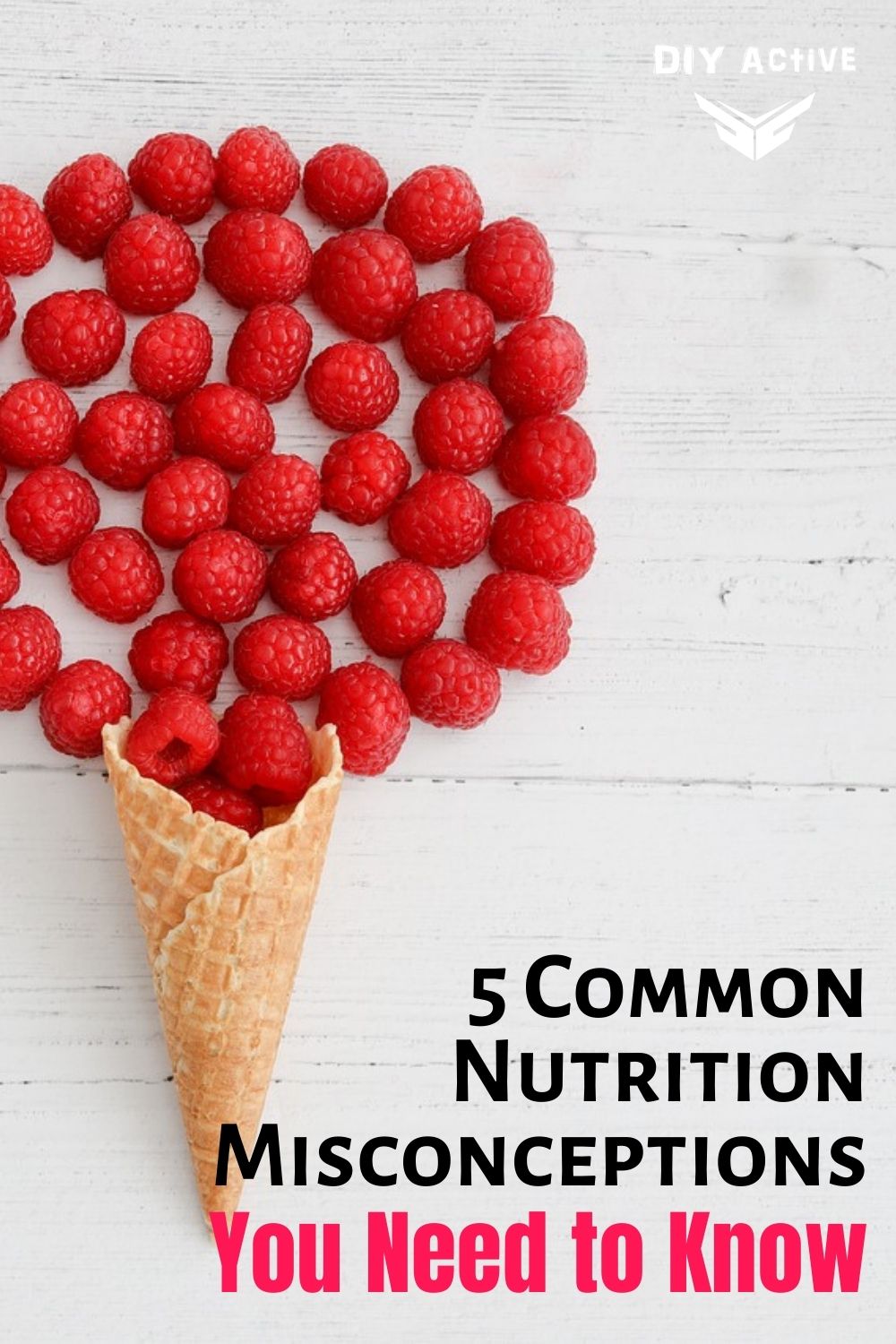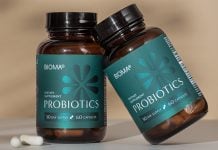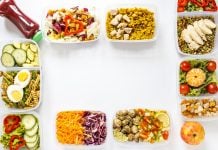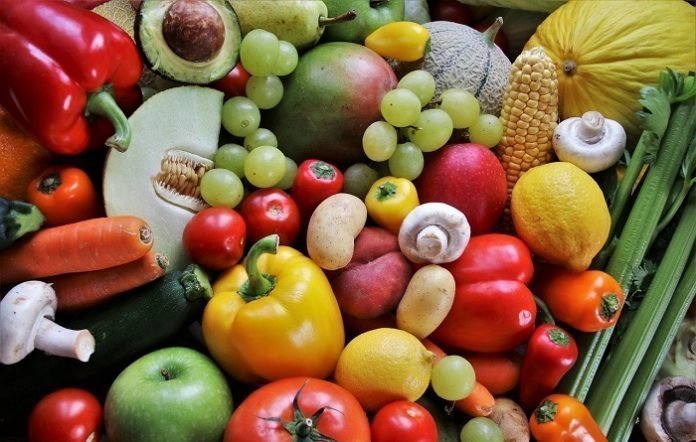
Common Nutrition Misconceptions You Need to Know
You hear people spout nutrition advice all the time, but is it true? We wanted to take some time to dispel some common nutrition misconceptions. Hope you find this info useful on your fitness journey. Let’s dive into it!
Common Nutrition Misconceptions
1. Granola/Granola Bars
Most people will say that granola bars and granola are healthy food options. However, most granola is laced with so much sugar it would make your head spin!
Mind you, dried fruits and nuts already have natural sugar; so, we really don’t need to indulge in extra sugar.
For example, some Cliff bars have 25 grams of sugar in one bar! That’s about how much added sugar someone should be consuming daily (at most).
I’m a big believer in limiting added sugar as much as possible. However, don’t be afraid to have a dessert every once in a while. I just don’t recommend consuming added sugar daily.
Healthy Brands: Ezekiel granola has no added sugars. It tastes a little bland but mixes great with honey, yogurt, and pancake mix.
Healthy bar choices include Rx bars and LARABARs.
2. Do Your Homework
Be sure to check the nutrition labels and the ingredients list on products for added sugars. Some common names for sugar other than “cane sugar” are anything with glucose, fructose, or sucralose.
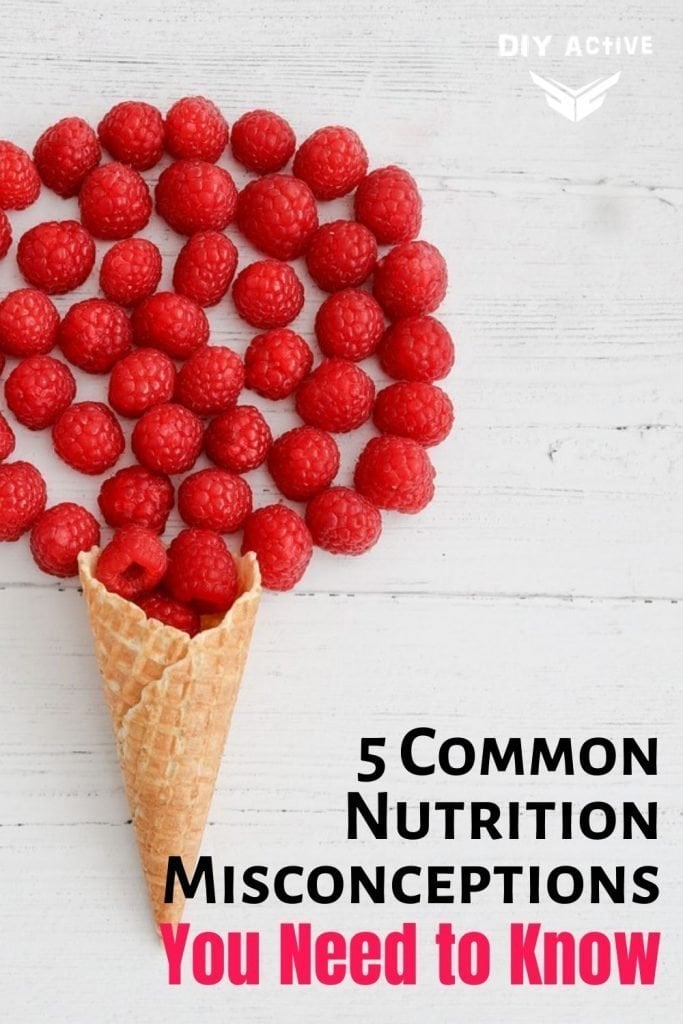 I was looking at a vegan ice cream label the other day, and the nutrition label said “14 grams of added sugar,” but on the ingredients list it only listed coconut products and maple syrup.
I was looking at a vegan ice cream label the other day, and the nutrition label said “14 grams of added sugar,” but on the ingredients list it only listed coconut products and maple syrup.
Clearly, there was added sugar in the syrup, but they didn’t want you to know that. Furthermore, the packaging even said “sweetened with maple syrup” to make the consumer think it was healthier than it really was.
This is one example of why we have to read the fine print folks!
3. Dried Fruits
While dried fruits are healthier than Oeros or donuts, they are not the healthiest choice for a snack.
Fruit contains a decent amount of natural sugar and nutrients. However, when the fruit is dried, the sugar remains and most of the nutrients are eradicated by the heat source.
Thus, you are consuming solely natural sugar.
With this being said, I would encourage everyone to eat sun-dried fruits over dried fruits as much as possible.
4. Fruit In Moderation
Furthermore, as stated previously, most fruit contains a decent amount of sugar. Because of this fact, I would have 1-2 servings a day at most.
Have your largest serving of fruit in the morning. I would stop consuming fruit by mid-afternoon since most of us are most active during the day. If one consumes a lot of sugars when they are less active, the sugar won’t burn off as much and has more of a chance of turning into fat/unused energy.
Some natural sugars/carbs are needed to fuel our bodies. However, if we aren’t expending a lot of energy when we consume them, they are more likely to store in unwanted places.
The fruits with the lowest amount of sugars are blueberries and raspberries, which are also rich in antioxidants.
Lastly, if you are on any type of weight loss program, I would avoid bananas altogether. They tend to help some folks hold on to weight. If you’re lacking potassium, I highly recommend talking to a medical professional about potassium supplements and/or if consuming bananas is necessary for you.
5. Coconut Products
For a while now, products such as coconut cream, coconut milk, and coconut oil have been all the rage.
However, if you look at the nutrition labels of these products, they usually have at least 10-12 grams of saturated fats in them.
A healthy human is supposed to consume no more than 25 grams of saturated fats a day (the less saturated fat the better though).
Saturated fat is an unhealthy kind of fat that can lead to weight gain, high cholesterol, high triglycerides, clogged arteries, and heart issues.
I recommend staying away from coconut products (for the most part) and replacing them with other products such as unsweetened almond milk and olive oil.
Wrap-Up
I hope this article has given you all some insight into what’s good for your bodies and what should be avoided.
As always, please feel free to reach out with any comments or questions here. As always, thanks for reading, and stay tuned!
- Split Workout Routines: What Are They and Why Do Them? - January 14, 2024
- Practical Tips for Sticking To Your New Year’s Fitness Goals - January 10, 2023
- At Home Ab Workout: Why Work Out the Core? - March 3, 2022
